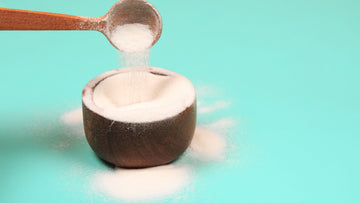
For many, coffee is a beloved ritual, a morning pick-me-up, or a cozy afternoon companion. But for those sensitive to caffeine, decaf offers a delicious alternative. Yet, behind the scenes of decaf production lies a world of chemistry, and one particular chemical has raised eyebrows - methylene chloride. A recent CNN article highlighted concerns about methylene chloride in decaf coffee, drawing attention to its potential health risks.
The Methylene Chloride Surprise: A Common Decaf Method
Did you know? Most commercially available decaf coffees, the ones you find on grocery store shelves, are likely decaffeinated using methylene chloride. This solvent, also used in paint strippers, dissolves caffeine from coffee beans after they've been steamed or soaked. The caffeine is then separated, and the beans are washed and dried before roasting.
Safety Concerns Around Methylene Chloride
While the FDA strictly limits the amount of methylene chloride allowed in decaf coffee (less than 10 parts per million), some health concerns linger. Prolonged or high-level exposure to methylene chloride has been linked to various health problems, including:
- Cancer: The National Cancer Institute classifies methylene chloride as a "possible human carcinogen."
- Nervous system effects: Exposure can cause dizziness, headaches, and difficulty concentrating.
- Respiratory problems: Inhalation may irritate the lungs.
Beyond Methylene Chloride: Decaf Done Differently
Consumers and those seeking a truly caffeine-free experience have other options. However, it's important to understand some key points about these alternatives. Generally, these methods tend to be more expensive than traditional methylene chloride decaf. While they remove most of the caffeine, they may not achieve complete decaffeination. The remaining amount can vary and isn't always strictly regulated.
- Swiss Water Process: This method uses pure water and green coffee extract to selectively remove caffeine without affecting the flavor.
- CO2 Decaffeination: This process utilizes carbon dioxide under high pressure to draw out caffeine.
Making Informed Decaf Decisions
We don’t know exactly what amounts of methylene chloride in decaf are unlikely to pose a health risk for consumers. However, some may prefer to avoid it altogether. Here's how you can be a more informed decaf drinker:
- Look for labels: Some brands advertise "naturally decaffeinated" methods, which often implies they don't use methylene chloride.
- Research brands: Some companies disclose their decaf process on their website or packaging.
- Consider alternative decaf methods: The Swiss Water Process and CO2 decaffeination are becoming more popular choices and often emphasized by brands.
Ultimately, the choice is yours. By understanding the chemistry behind decaf and the available options, regardless of your caffeine preference you can enjoy your cup peace of mind with Not Coffee, completely caffeine and chemical free.





